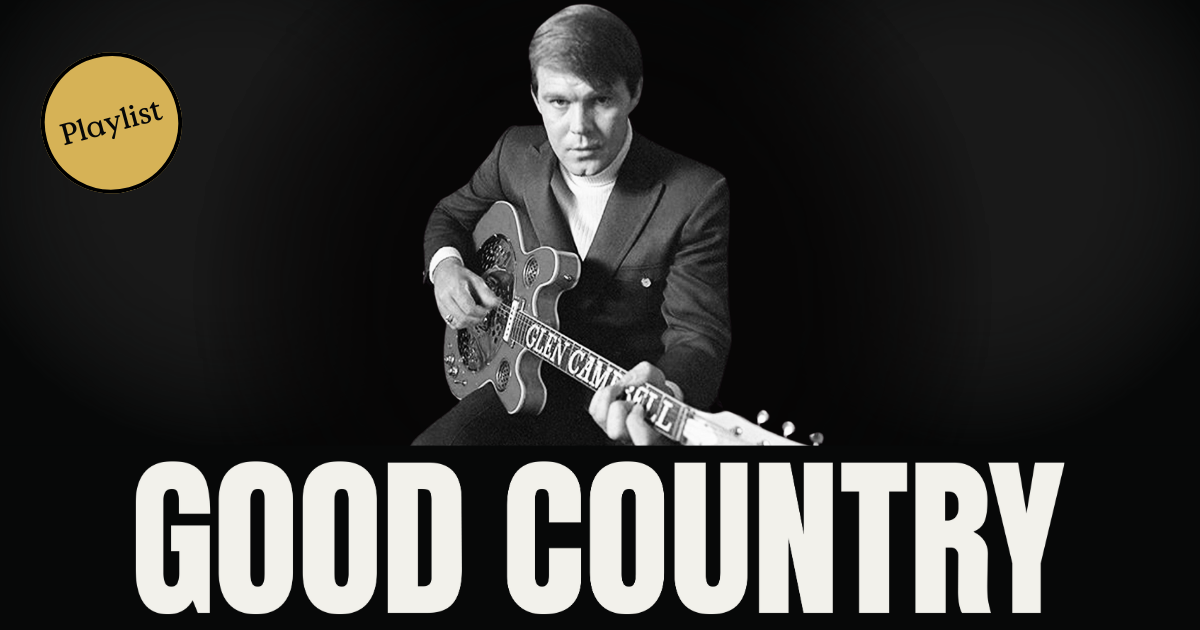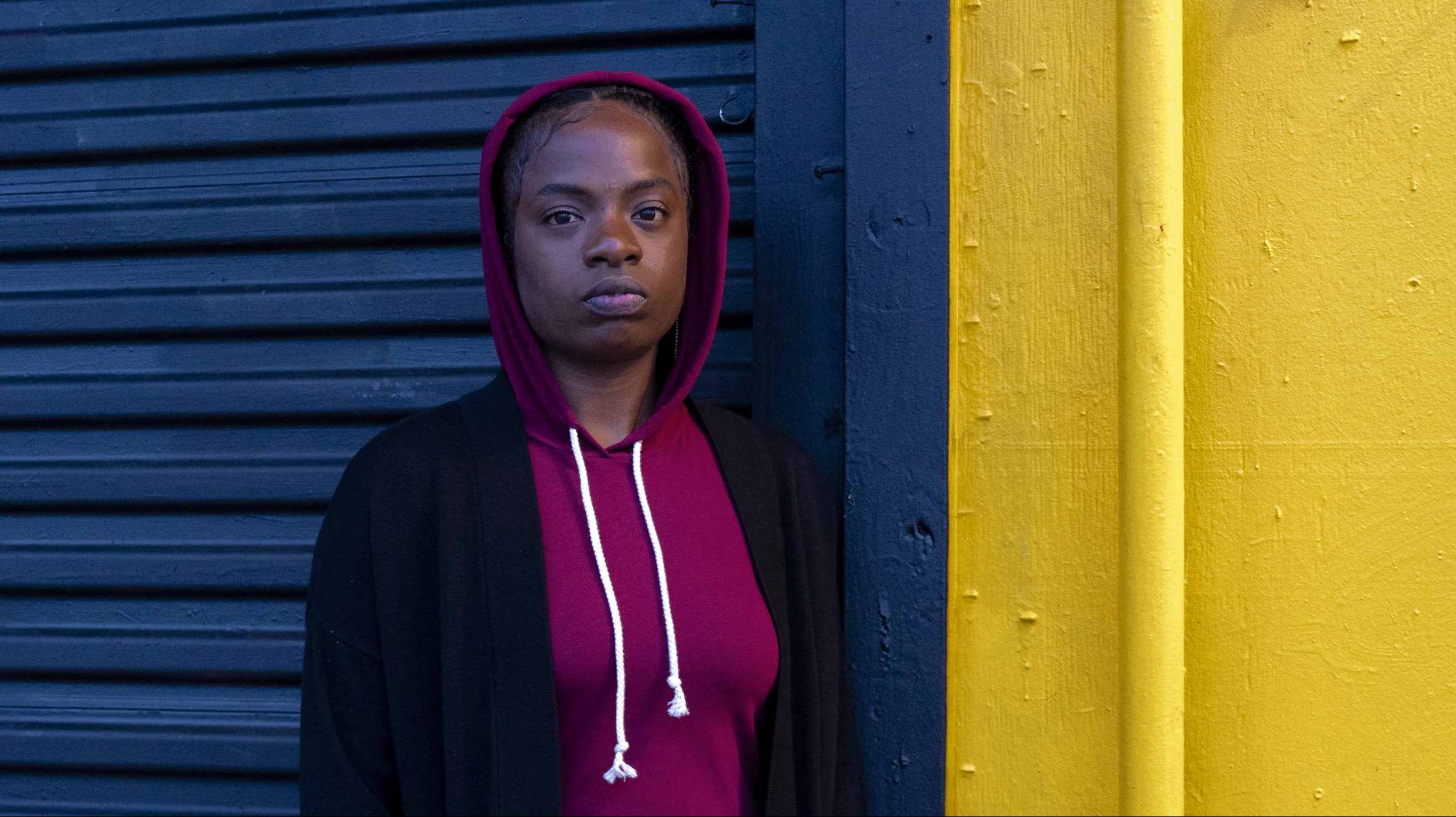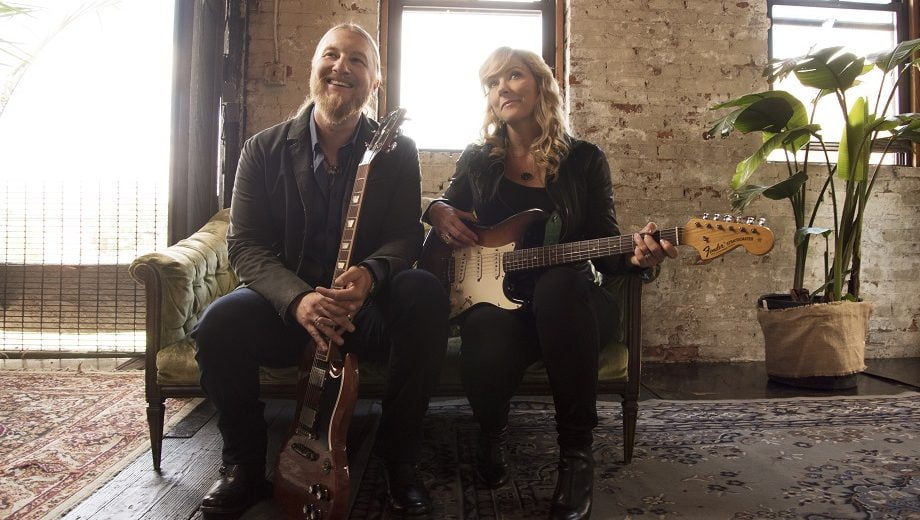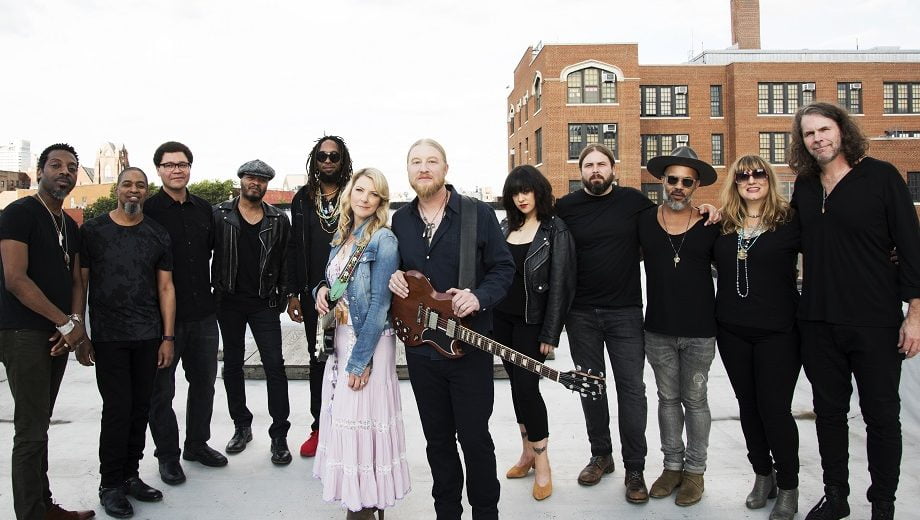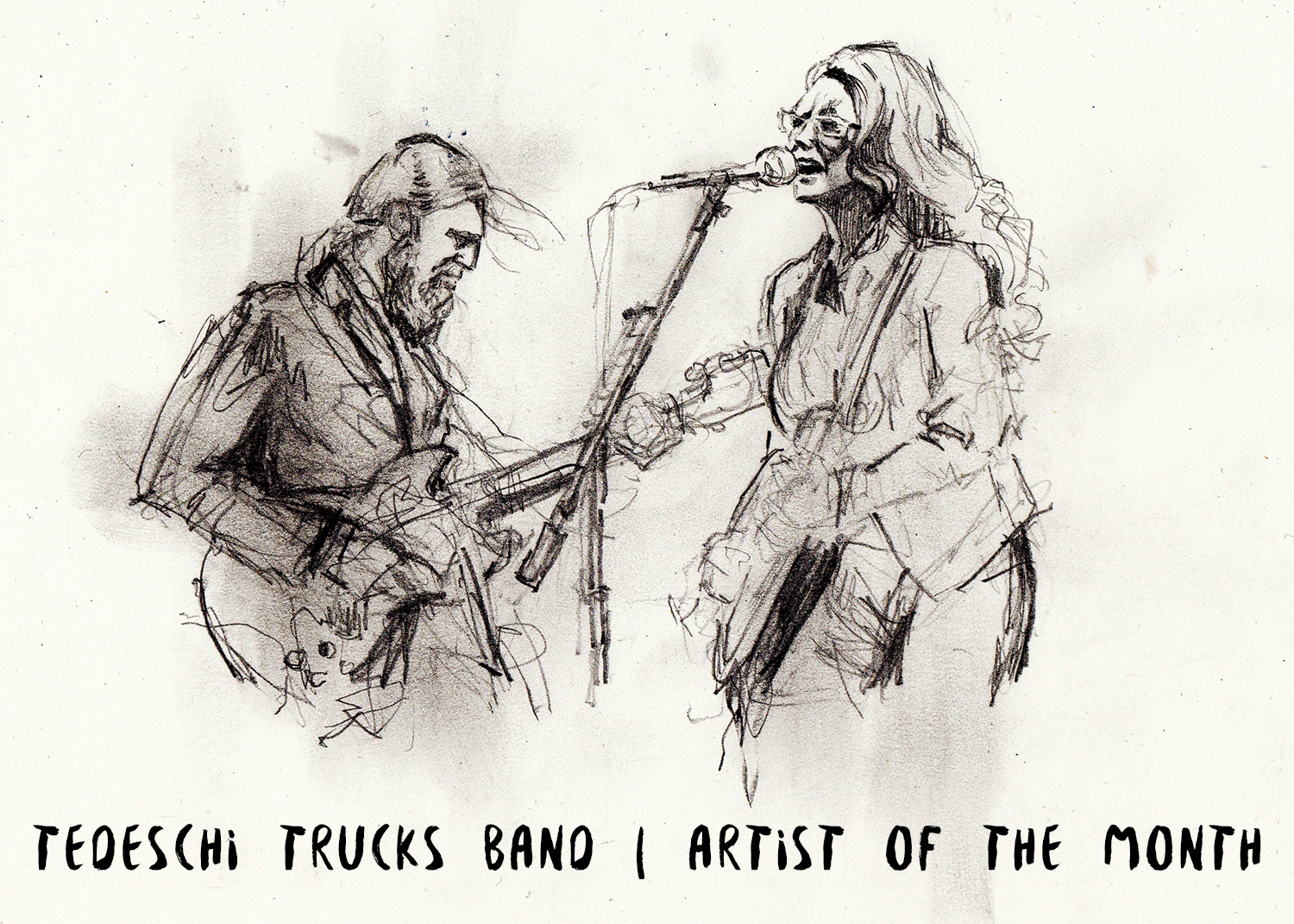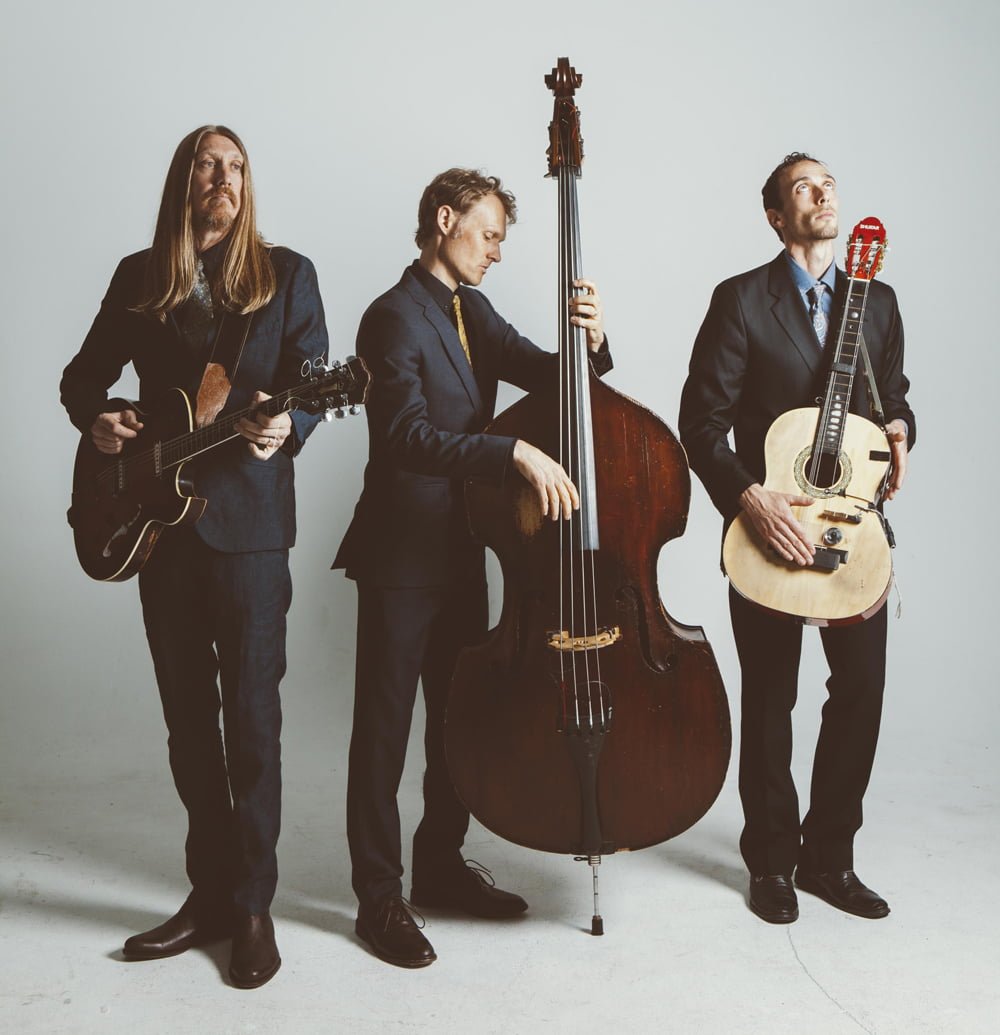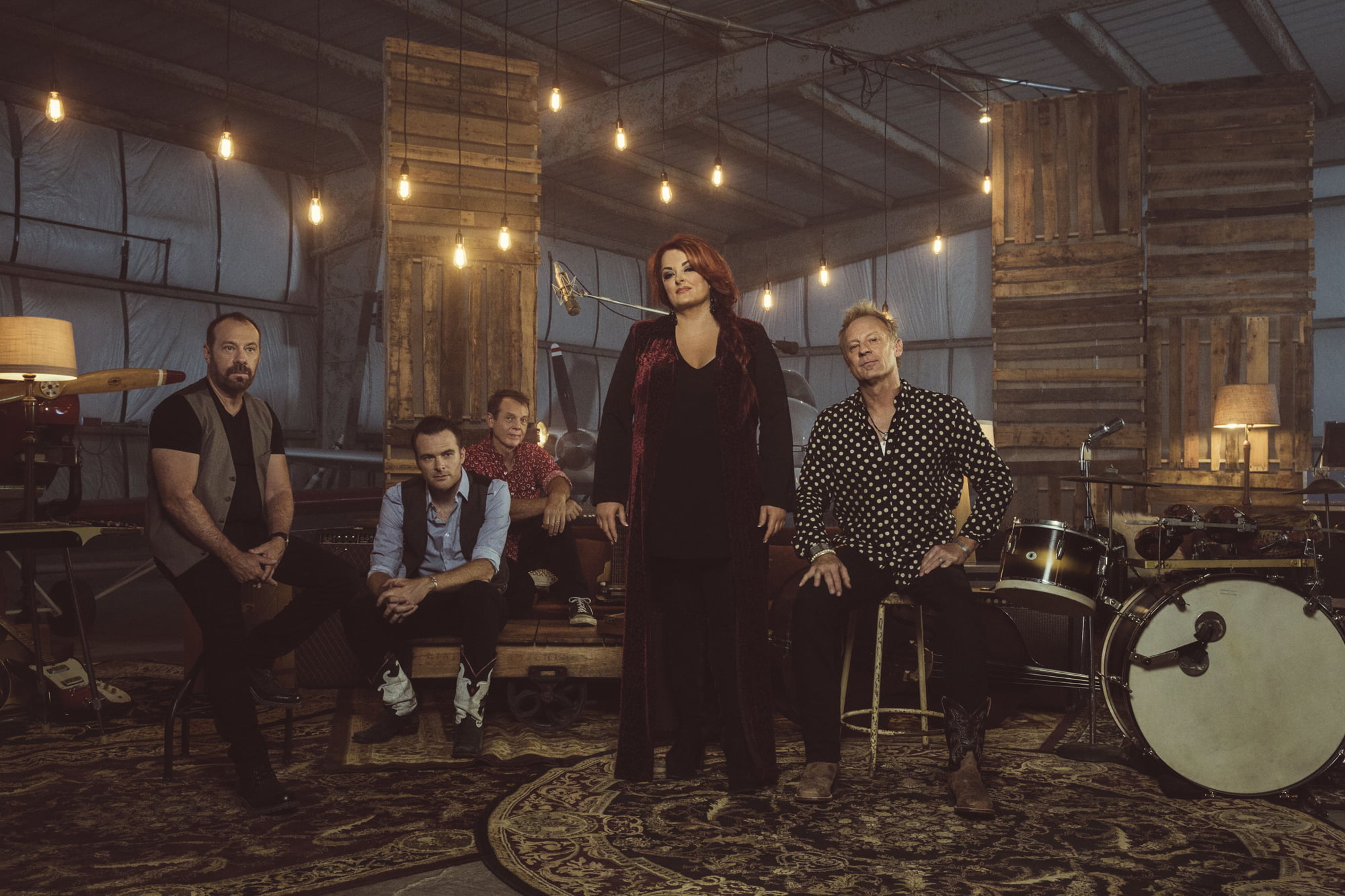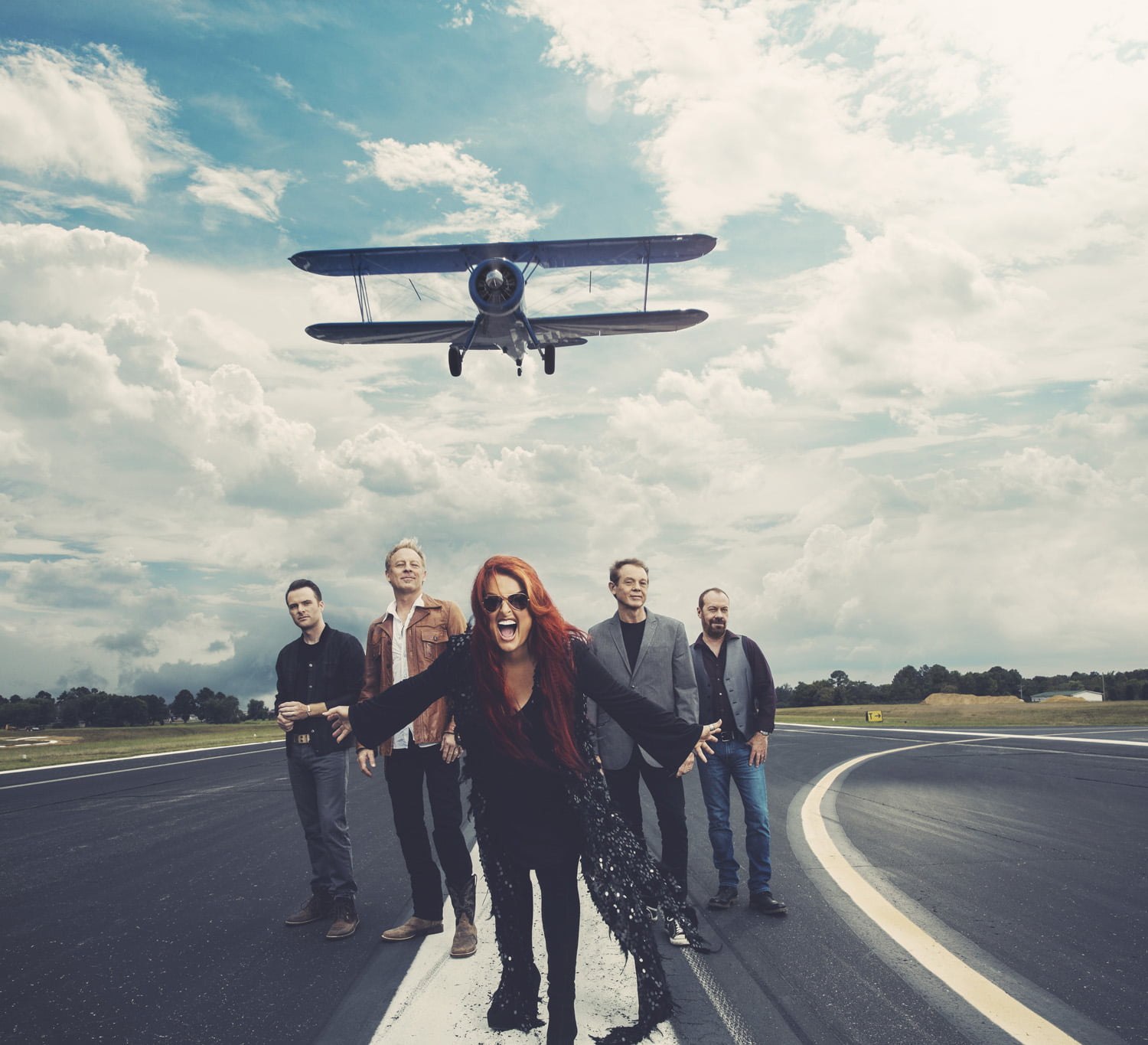Boasting an Instrumentalist of the Year nomination at the 2024 Americana Music Association Honors & Awards (held September 18), Grace Bowers may be one of the most exciting new guitar players on the planet – with extra emphasis on “new.”
Still in her teens, the Bay Area native has made a splash with soulful-beyond-her-years playing and the enthusiasm of youth, but she’s proving to be more than just a six-string specialist. Now leading a funky blues-rock outfit called The Hodge Podge, Bowers dropped a strutting, co-written debut single – “Tell Me Why U Do That” – and has a cosmic follow up to come. Plus, she’s not afraid to speak her mind.
Already using her platform for positive impact, Bowers will host the 2nd annual An Evening Supporting Love, Life & Music benefit concert at Nashville’s Brooklyn Bowl June 10. Founded to support victims of the Covenant School Shooting and now benefiting Voices for a Safer Tennessee and MusiCares, the show will feature Bowers and The Cadillac Three, Devon Gilfillian, Caroline Jones, Meg McRee, Jared James Nichols, John Osborne, Lucie Silvas, SistaStrings, Brittney Spencer, and Butch Walker, as the rising star looks to leverage her “prodigy” label attention.
BGS caught up with Bowers just as the summer festival season kicked into gear, getting to know an exceptional breakout talent who seems primed for a long career to come.
After blowing up on social media during the pandemic, you’ve done a lot in the last few years – but, you still have a few months before you turn 18, right? How have you managed to balance this music career with growing up and just being a teenager?
Grace Bowers: It’s definitely a weird balance, and especially since I don’t go to school anymore. I started doing [school] online a year-and-a-half ago … and I don’t miss homework, but I definitely miss being around people my own age and just a normal experience. But at the same time, I’m getting to do this stuff that I love almost every night, and I would take that over anything. Some people look at it like I’m doing it too fast, or someone’s pulling strings for me, and it’s not true. This is what I love and I can’t imagine doing anything else.
What drew you to guitar in the first place? I know people like to compare you to the female guitar greats, like Bonnie Raitt or H.E.R., but I feel like it doesn’t have to be just women. I hear a lot of Prince’s style in you, or even Derek Trucks.
Yeah, I love all those players that you just mentioned! The first time I was drawn to a guitar or just to music in general was when I was 9 years old, and I saw Slash on YouTube. Which is kind of a basic answer, but that’s how it happened. I was watching the “Welcome to The Jungle” music video.
Really? So did you just rush right out and say, “Hey, mom and dad, I need a guitar”?
That’s pretty much how it went. I think I tried almost every other hobby there was. I got kicked out of soccer, hated Girl Scouts. I’m pretty sure I got kicked out of softball, too. I was not good at gymnastics. I tried everything and my parents tried everything. So when I came to them and said I wanted a guitar, they were like, “We’ll get you a guitar.”
Were you ripping leads within months, or how long did this take?
Oh, no, no. People call me a prodigy a lot and it’s entirely not true, because for the first three years I was so bad. I was awful, and I wasn’t even really passionate about it. It was just kind of something that I did. I never really practiced or dug into other music styles.
But when I was 13 and COVID had just started, I heard B.B. King for the first time – “Sweet Little Angel” – and that song starts off with three notes. I was so hooked on that, and it was a sound I had never heard before, because I didn’t grow up around music. I don’t have any players in my family, so it was a completely new thing to me, and that’s what really made me passionate about it. I started actually learning things on guitar, but it was not an immediate light bulb moment for me.
I think that’s actually a good message for people, because it’s easy to get burned out trying to learn an instrument.
Yeah, it takes time.
Was it a shock to get this Americana Music Association nomination? You’re up for Instrumentalist of the Year, right?
Yeah, I forgot. I didn’t even know I was nominated, to be honest with you. I had no idea. I opened Instagram one day and I was tagged in the post. I’m like, “Holy shit, this is insane.” Because the year before that, I was in the audience at the Ryman watching the Americana Awards. So now that I get to be there, that’s insane.
Tell me about getting the band going and working on songwriting. You’re known for your guitar playing, but it seems like you’ve been trying to diversify. Does that come natural?
Songwriting was a bit of a learning curve for me, but it is something I’m very, very much into these days. I feel like people just look at me as a guitar player, but I don’t really feel like I’m just a guitar player. And even at that, I’m not some bright virtuoso guitar player. I wouldn’t consider myself that at all. I lead this band, I wrote all the songs or co-wrote them. So I think that that’s something that a lot of people don’t realize when they’re leaving hate comments online.
Your band sounds amazing – I love how much funk and soul is in the mix. It’s also cool you present yourselves as an ensemble. It’s not just Grace Bowers and then some people behind her.
That was my goal, because like I said, I don’t want to be known as just a guitar player. If you think of Derek Trucks, you think of Susan [Tedeschi], too. Tedeschi Trucks Band would not be what it is without one another, and I love that. And since I don’t sing right now, I want to be known for this amazing band.
The first single, “Tell Me Why U Do That,” came out a little while back. It’s super funky and light – what did you write that about?
It wasn’t written about a single person. It sounds like it is, but I wrote it with John Osborne and his wife Lucie [Silvas], and honestly, we wrote it in an hour and we were kind of just bullshitting lines. … Normally I’m like, “Well, the lyrics have to mean something.” But I kind of let that go for this one. It’s just a fun song.
Does that speak to the other stuff you’re doing?
For the most part, the lyrics were very intentional. My second single that’s coming out is called “Wine on Venus,” and this one has a cool story behind it. It was written about my Nana who passed away a bit ago. I’m from California, so we went home for Christmas this year and it was the first year not having her at Christmas. Everyone was talking about her, and my uncle said she always told him that when she died, she’d be drinking wine on Venus. It’s the brightest star.
Oh, wow.
Yeah, and I thought that was such a cool thing to think about. So I brought it back here and I was writing with Ben Chapman and Meg McRee, and I told them this story, and this song just flowed right out of us.
Your grandma sounds like she was awesome.
Yeah, she was kind of crazy, but there were some good nuggets in there from time to time.
John Osborne is producing your work, and he’s an amazing guitarist in his own right. Does that have an impact on what you’re doing?
Absolutely. I don’t think enough people are talking about how good a guitar player John Osborne is. He’s on a whole ‘nother level, and I don’t hear his name mentioned when people are talking about great guitar players, but I can’t imagine doing it with anyone else. I think he just completely understood my vision and the sound I was going for, and I’ve worked with producers before who have a sound and they’ll try to mold you into their sound, and John wasn’t like that at all. I mean, he gave us direction and some really great ideas, but really let me and the band lead the ship on where it was going. So I really appreciated that.
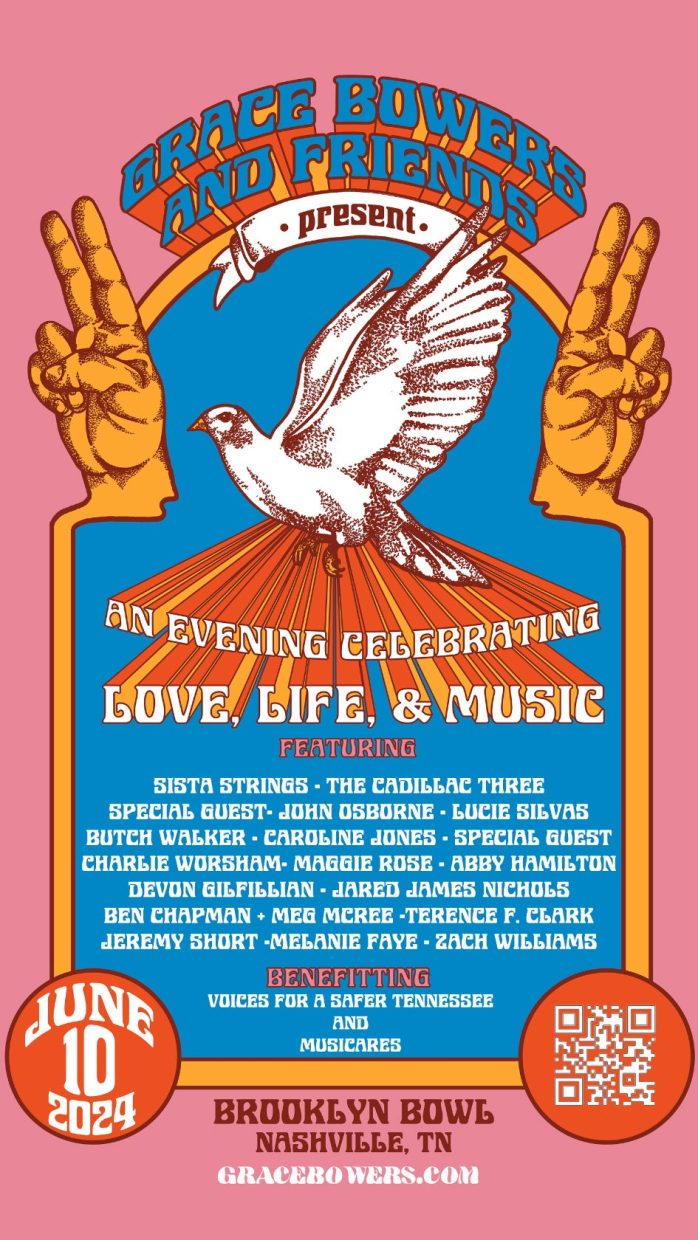
Tell me about the benefit you put together for June 10 – An Evening Supporting Love, Life & Music. Why did you want to do this so early in your career?
This is my second year doing it, and the first year I put together after the Covenant School shooting. I have two little brothers in school, and I remember the day it happened, they were texting me like, “There’s a school shooting.” And at first they didn’t tell me what school, so my heart dropped thinking it was at their school. They eventually told me, but that brief moment of panic I had – I can’t imagine if you were a parent with a kid at Covenant on that day. Just to even think about that is awful. And it really upset me seeing how much of a divide there was, because coming from the Bay Area in California, we have different viewpoints.
I don’t know, it just upset me that it seemed to be such a divided issue, and really I think there’s a lot of common ground to be found. The first year I did it, the money went directly to the school and MusicCares, and it went amazing. So much so that the school is no longer accepting donations. They received so much support. So this year we’re donating [proceeds] to an organization called Voices for Safer Tennessee, and they’re non-partisan so it’s not political in any way, and they’re advocating for safer gun laws – which Tennessee needs some of that. I’m just doing all I can to support something that I’m passionate about, and I want to see some change.
Photo Credit: Cedric Jones

